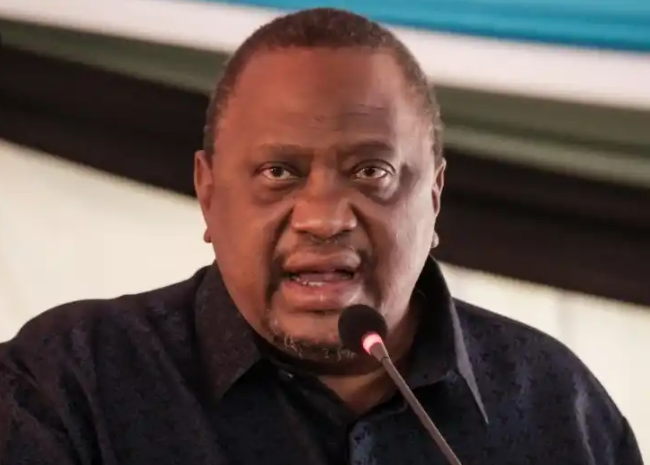It has come to light that former President Uhuru Kenyatta is personally funding the operations of his office.
This includes paying for staff allowances and fueling vehicles, despite a parliamentary allocation of Ksh 503 million for this financial year.
The absence of government funding for the former president’s office has raised significant questions about the management and disbursement of these funds by State House.
According to sources, State House has been unable to substantiate where the funds meant for the former president are being diverted.
This discrepancy is particularly concerning given the constitutional mandate for such allocations. The former president’s office has emphatically distanced itself from the budget that was presented in parliament, asserting that it had no input in the preparation of the budget estimates
The confusion extends to future budget allocations as well. The Treasury has projected allocations of Ksh 450 million for the year 2025/2026 and Ksh 475 million for 2026/2027.
These figures were reported by The Star Newspaper on Tuesday, May 14, 2024.
Yet, the former president’s office remains in the dark about the basis for these projections, further highlighting the lack of communication and consultation in the budgeting process.In addition to the financial oversight, there have been allegations of staff being withdrawn from the former president’s office via phone calls, accompanied by intimidation from State House.
Key personnel, including Kanze Dena and George Kariuki, have not been on the government payroll for several months after their contracts were not renewed by the government.
This abrupt cessation of support has forced the former president to personally ensure that his staff are compensated and that his office remains operational.
The implications of this situation are profound, as they suggest a deliberate marginalization of the former president’s office.
The lack of transparency and accountability regarding the allocated funds has led to speculation about potential misuse or misappropriation.
Stakeholders are calling for an urgent audit to determine the whereabouts of the funds and to ensure that constitutional provisions are being upheld.
This episode underscores the broader challenges of governance and financial management within the state.
It also raises critical questions about the respect for and treatment of former leaders.
President Kenyatta’s decision to personally fund his office speaks to a commitment to maintaining his operations despite governmental hurdles, but it also highlights the systemic issues that need to be addressed to ensure fairness and transparency.
As the situation unfolds, it will be crucial for State House and the Treasury to provide clear explanations regarding the budgetary allocations and the absence of funds for the former president’s office.
The scrutiny from the public and media will likely intensify, putting pressure on government officials to resolve these discrepancies and restore trust in the financial management of state resources.





















Add Comment